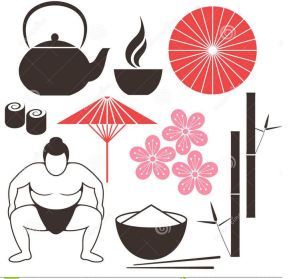People and Culture in Japan!
Japan is a country where the past meets the future. Japanese culture stretches back millennia, and yet has also been quick to adopt and create the latest fashions and trends.
Formality and Politeness
The Japanese are well known for their politeness. Many Japanese are thrilled to have visitors to their country and are incredibly helpful to lost and bewildered-looking foreigners. Younger Japanese people are often extremely interested in meeting and becoming friends with foreigners as well.
Greeting:
In Japan, people greet each other by bowing. A bow ranges from a small nod of the head to a long, 90 degree bend at the waist. Understand more about bowing and Japanese etiquette.
Check out some basic greetings on youtube to help you get started!
Drinking or Eating customs?
- It is acceptable to lift soup and rice bowls to the mouth so that one does not spill food. Miso soup is drunk directly from the (small) bowl, rather than with a spoon, though larger soups may come with a spoon.
- Not finishing your meal is not considered impolite in Japan, but rather it is taken as a signal to the host that you do not wish to be served another helping.
- There are many traditions and unwritten rules surrounding the use of chopsticks (はし hashi). For example, it is considered particularly taboo to pass food from chopsticks or to stick the chopsticks directly into the rice (this is reminiscent of incense lit at funerals).
Tipping
Depending who you ask and what part of Japan you are staying in, tipping may or may not be an acceptable practice.
Many Japanese believe that good service should be the standard and therefore, tipping is not necessary. However, some staff that work for Japanese tourist companies are accustomed to receiving tips and may be grateful to receive a small gratuity.
Find out more about Etiquette in Japan
- It is considered an honor to be invited to someone’s home in Japan. Many Japanese regard their homes as being too humble to entertain guests. Shoes are not worn inside
- Greetings are considered to be of extreme importance in Japanese culture. Students in elementary and secondary schools are often admonished to deliver greetings with energy and vigor. A lazy greeting is regarded with the type of disdain that would accompany a limp handshake in parts of the West.
- It is common for Japanese businesses to set out a small tray near a cash register so that customers can place their money on the tray rather than handing it directly to the cashier.


